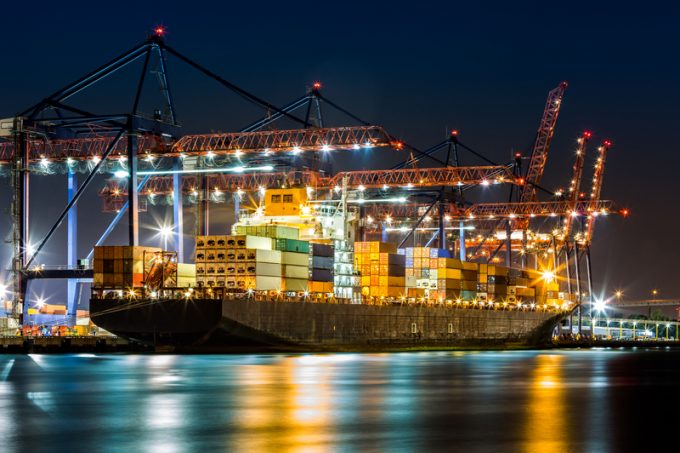East coast port strike threat prompts shippers to consider heading west instead
Cargo owners have been advised to make contingency plans for a strike at US east ...

The National Retail Federation (NRF) is getting nervous about a strike hitting US east coast terminals in October – others should be too.
NRF president and CEO Matthew Shay wrote to International Longshoremen’s Association (ILA) president Harold Daggett and United States Maritime Alliance (USMX) chairman and CEO David Adam, urging both sides to restart contract negotiations as soon as possible.
“Discussions have been on hold for months, and talk of potential disruptions has increased,” Mr Shay wrote.
The current labour contract between USMX, representing employers at 36 ports on the east and Gulf coasts, and the union, representing some 70,000 dock workers, is set to expire on 30 September. Negotiations started last February, but fizzled out with the two sides far apart on worker remuneration.
Pay is one of three major hurdles for the negotiators. Last year, the negotiations on the west coast produced a 32% pay rise for members of the International Longshore and Warehouse Union, plus a one-time bonus for their work during the pandemic.
The ILA has made it clear that it is standing firm in its commitment to secure work for its members. At the centre of this is the legal dispute with the USMX over employment at the Leatherman container terminal at Charleston, where employers are pushing for a hybrid labour model.
Another flashpoint – the issue of work allocation – is looming over the handling of offshore wind components, and the third battleground is automation, to which the ILA has shown firm opposition.
In November, Mr Daggett called for union locals to start early with negotiations, so that local issues were resolved ahead of the master contract talks. One reason for the length of negotiations on the west coast had been local issues that held up the main talks for months.
His letter also suggests that the union wants to be ready to down tools if no agreement is in place come 1 October. In November, Mr Daggett warned there would be no extension of the current agreement beyond 30 September.
Weston LaBar, SVP industry relations of Cargomatic, said the union’s stance in the Leatherman terminal dispute showed the ILA was willing to fight for jobs, which makes work stoppages a likely outcome if the contract talks do not produce an agreement by the end of September.
However, cargo owners don’t appear to be much concerned today, said Bob Imbrani, SVP international at Team Worldwide. The problems around the Panama and Suez canals are a higher priority for the forwarder’s customers at this point, he added.
And there is a sense of having time to deal with the east coast labour situation later, he said. Moreover, supply chains are not suffering any serious congestion at this point, so there is less urgency than when the west coast contract negotiations got under way.
Team has not taken any concrete steps to prepare for a work stoppage at east coast ports, but has looked at alternative routings, primarily these focus on Canadian and Mexican ports. And Mr Imbriani added: “We’re already moving cargo through Mexico.”
He reckons ocean carriers will step up sailings to Canadian gateways in the event of strikes hitting US east coast ports, but it is difficult to gauge at this point how much capacity will be available there and on the rail and road links to the US.
There is a good chance that disruption would be significant, he noted, and also pointed out: “The contract end is right in the middle of the peak season.”
That thought should cause a greater sense of urgency among cargo owners.
Comment on this article